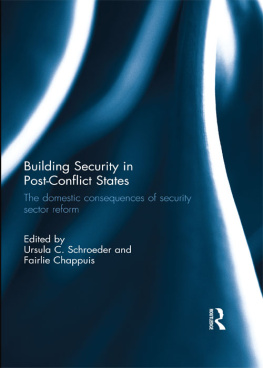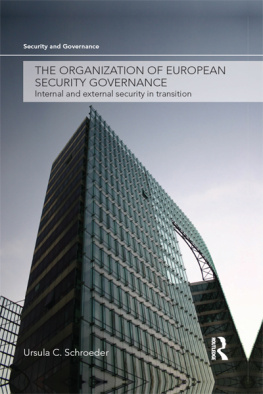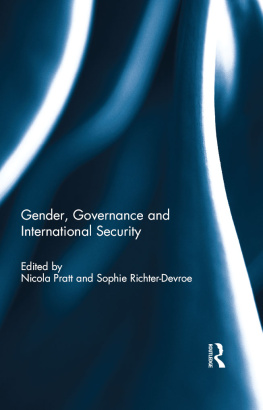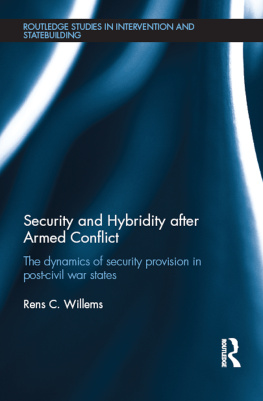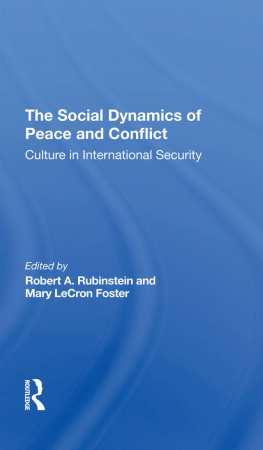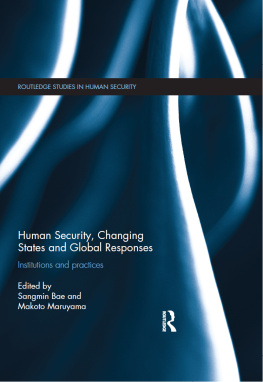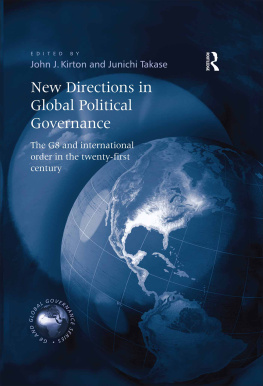Ursula C. Schroeder - Building Security in Post-Conflict States: The Domestic Consequences of Security Sector Reform
Here you can read online Ursula C. Schroeder - Building Security in Post-Conflict States: The Domestic Consequences of Security Sector Reform full text of the book (entire story) in english for free. Download pdf and epub, get meaning, cover and reviews about this ebook. City: London, year: 2015, publisher: Routledge, genre: Science / Politics. Description of the work, (preface) as well as reviews are available. Best literature library LitArk.com created for fans of good reading and offers a wide selection of genres:
Romance novel
Science fiction
Adventure
Detective
Science
History
Home and family
Prose
Art
Politics
Computer
Non-fiction
Religion
Business
Children
Humor
Choose a favorite category and find really read worthwhile books. Enjoy immersion in the world of imagination, feel the emotions of the characters or learn something new for yourself, make an fascinating discovery.
- Book:Building Security in Post-Conflict States: The Domestic Consequences of Security Sector Reform
- Author:
- Publisher:Routledge
- Genre:
- Year:2015
- City:London
- Rating:3 / 5
- Favourites:Add to favourites
- Your mark:
Building Security in Post-Conflict States: The Domestic Consequences of Security Sector Reform: summary, description and annotation
We offer to read an annotation, description, summary or preface (depends on what the author of the book "Building Security in Post-Conflict States: The Domestic Consequences of Security Sector Reform" wrote himself). If you haven't found the necessary information about the book — write in the comments, we will try to find it.
Support for security and justice institutions has become a crucial instrument of international engagement in fragile and conflict-affected states. In attempts to shore up security as a precondition for sustainable peace, international actors have become deeply engaged in reforming the security agencies and security governance institutions of states emerging from conflict. But despite their increasing importance in the field of international peace- and state-building, security sector reform (SSR) interventions remain both highly political and deeply contentious processes. Expanding on this theme, this edited volume identifies new directions in research on the domestic consequences of external support to security sector reform. Both empirically and theoretically, the focus lies on the so far neglected role of domestic actors, interests and political power constellations in recipient states. Based on a wide range of empirical cases, the volume discusses how the often conflictual and asymmetric encounters between external and domestic actors with divergent interests and perceptions affect the consequences of international interventions. By taking into account the plurality of state and non-state security actors and institutions beyond classical models of Weberian statehood, the contributions make the case for engaging more closely with the complexity of the domestic security governance configurations that can result from external engagement in the field of security sector reform.
This book was published as a special issue of International Peacekeeping.
Ursula C. Schroeder: author's other books
Who wrote Building Security in Post-Conflict States: The Domestic Consequences of Security Sector Reform? Find out the surname, the name of the author of the book and a list of all author's works by series.

